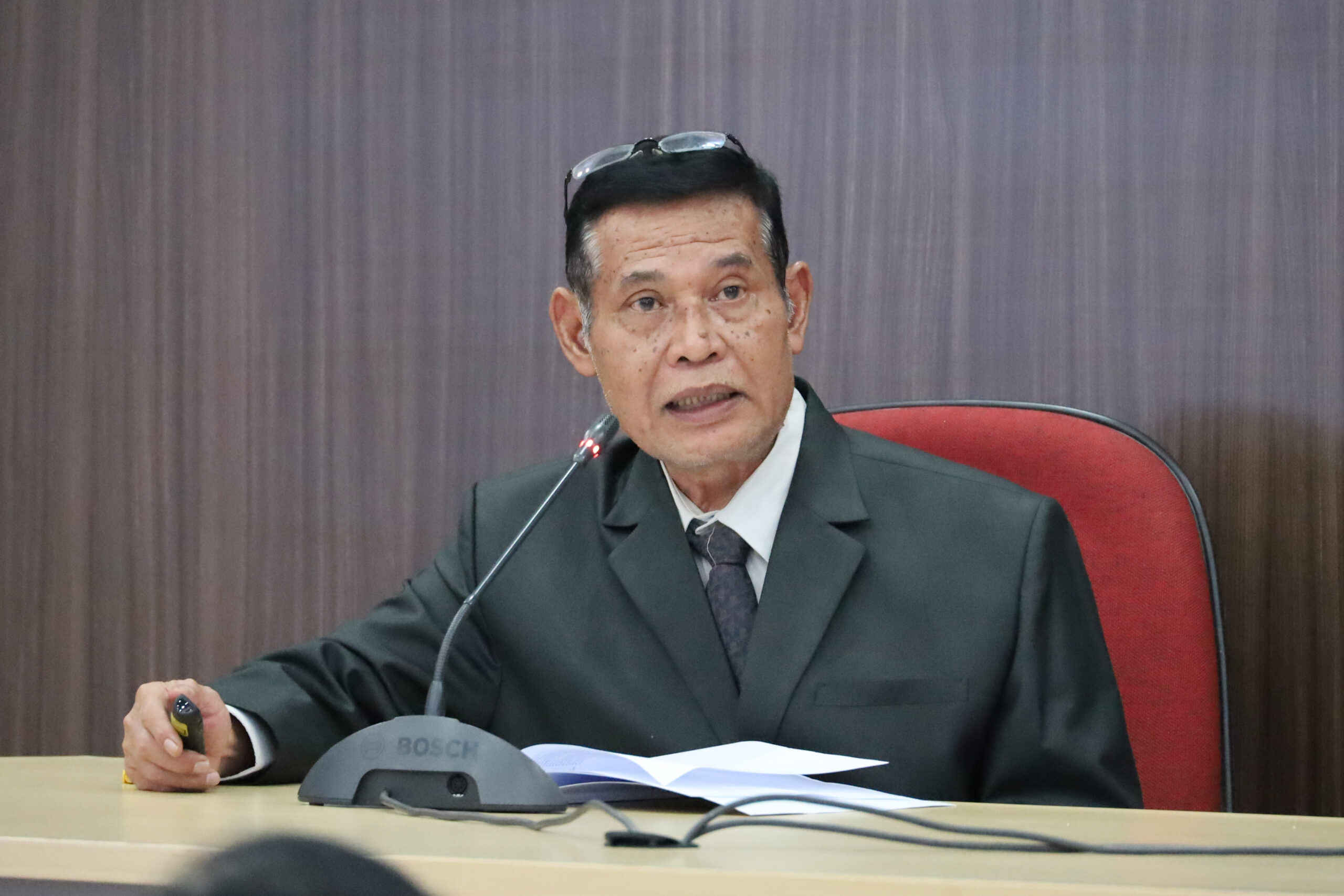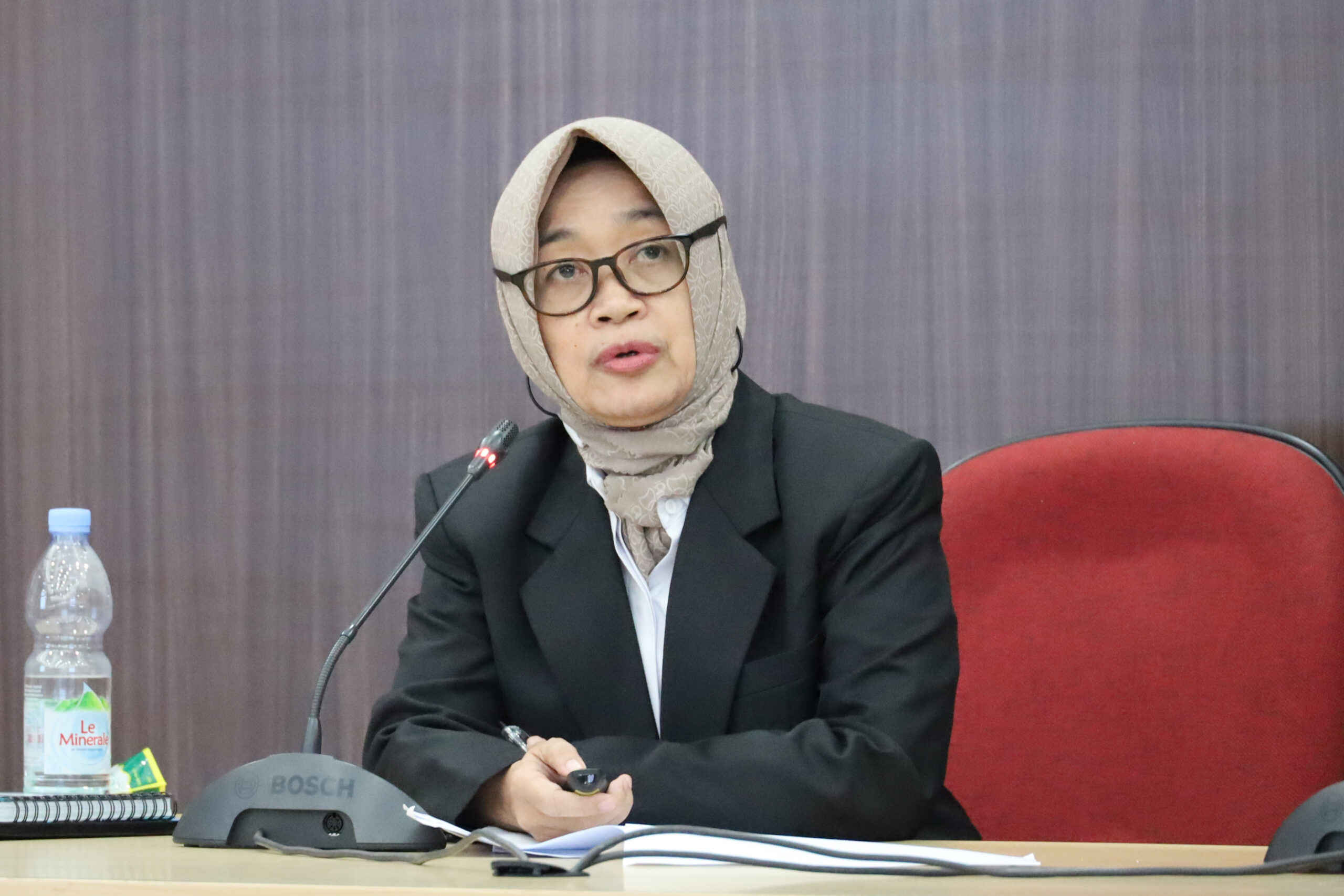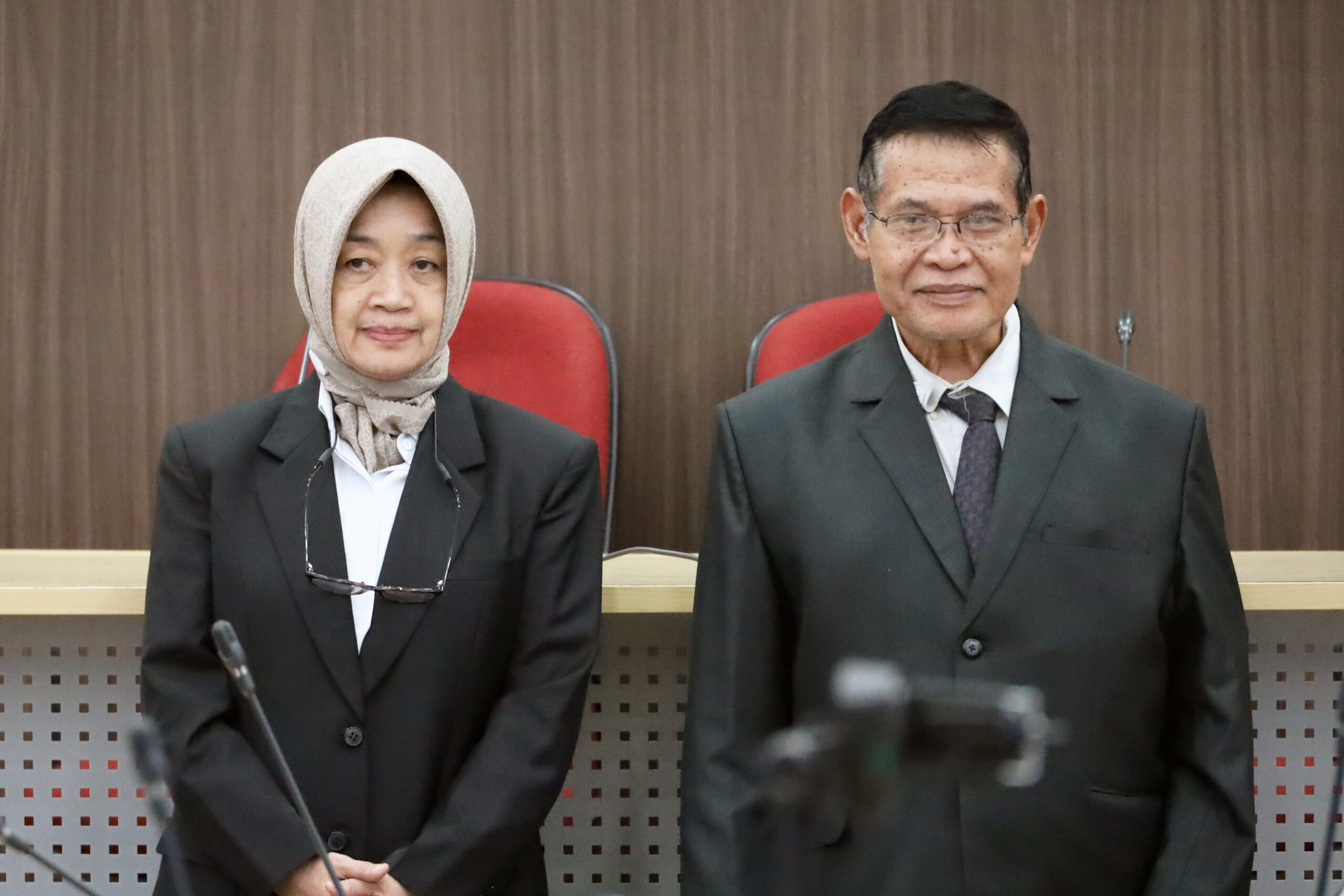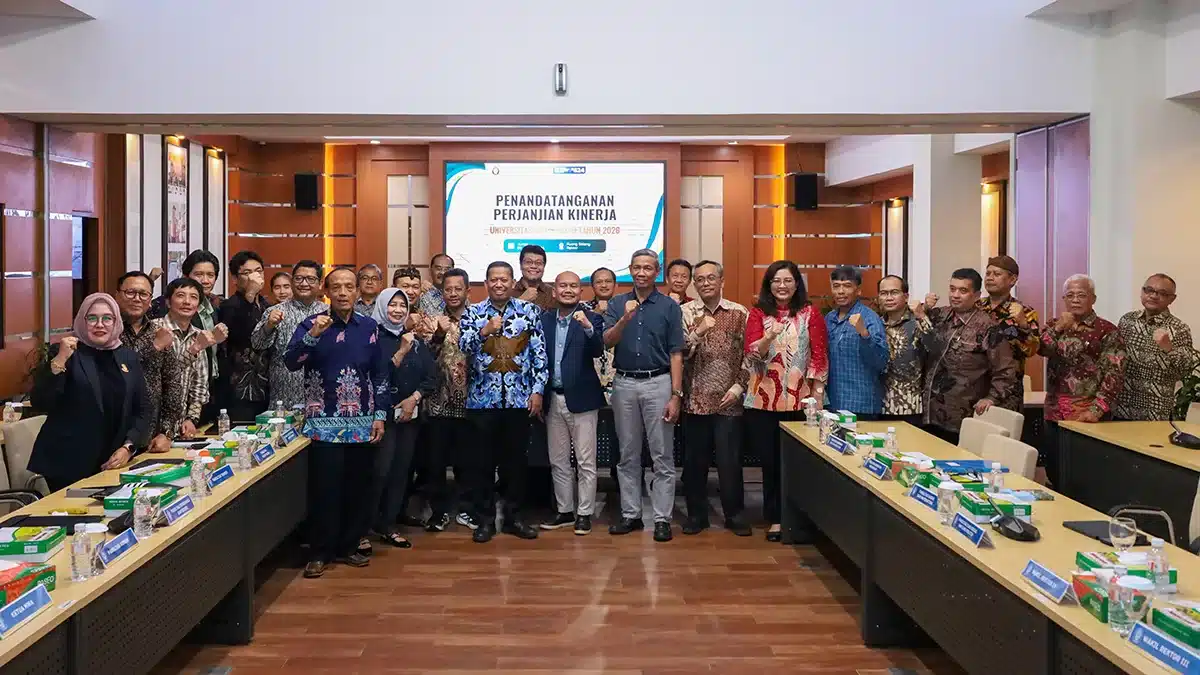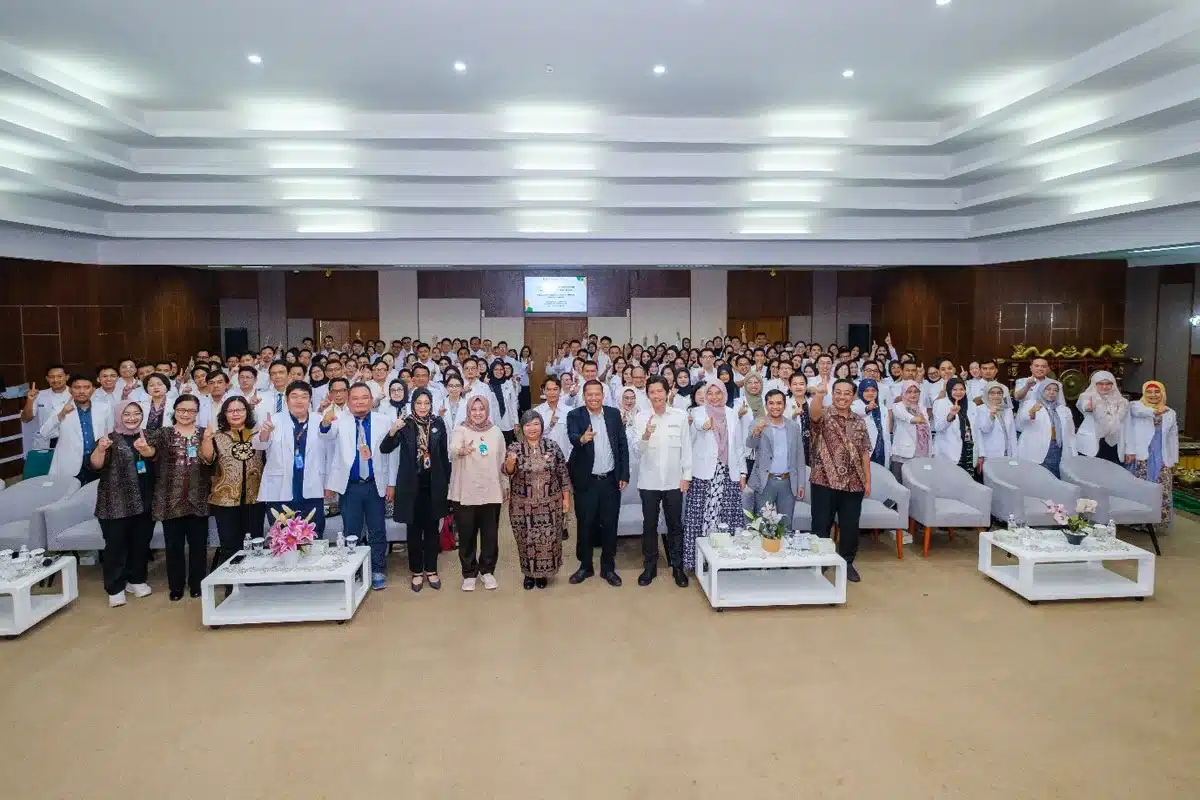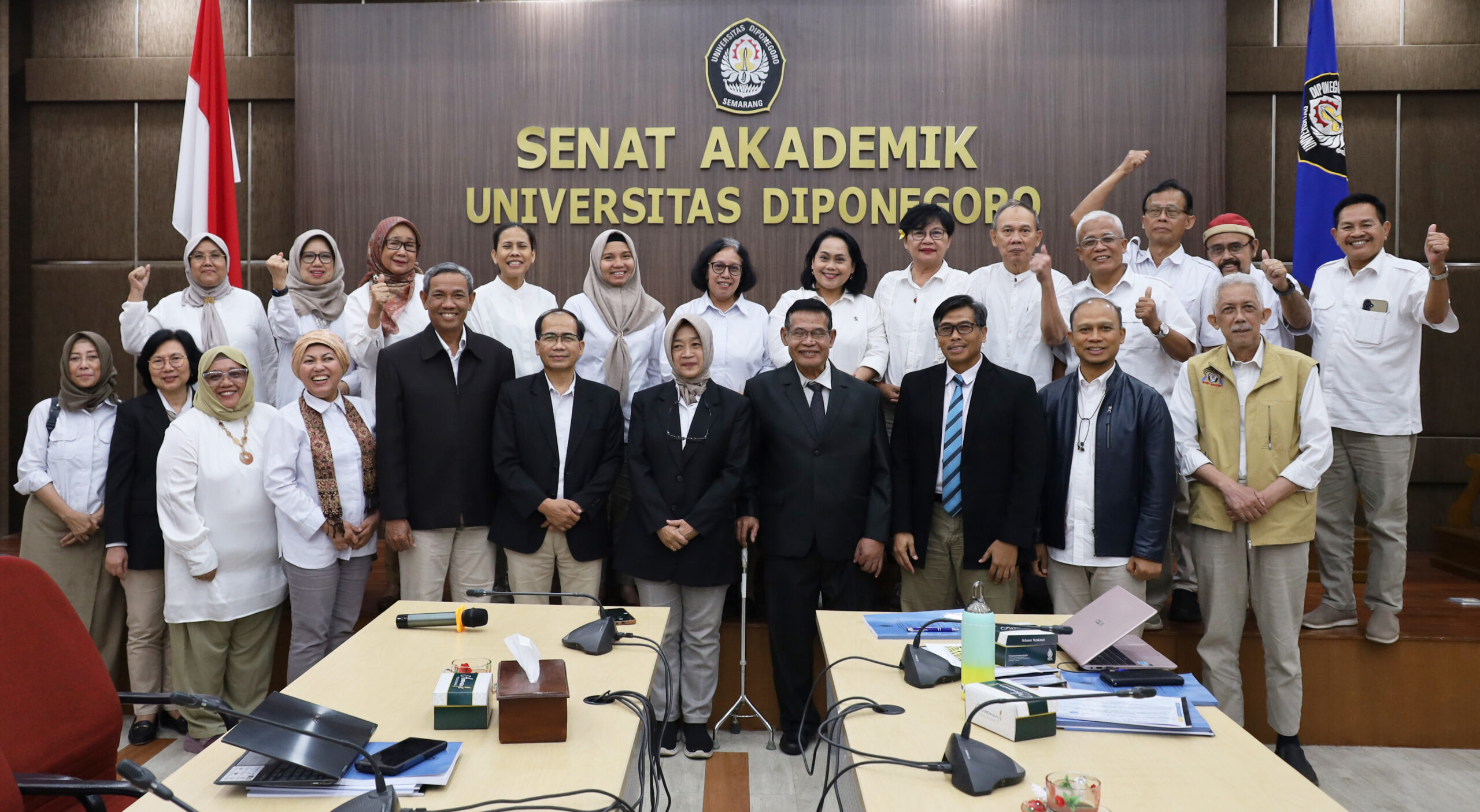Universitas Diponegoro (UNDIP) held a presentation of scientific papers by two prospective professors, organized by the UNDIP Professor Council on Monday (11/11), in the Academic Senate Meeting Room, 3rd Floor, SA Building, UNDIP Tembalang Campus.
The two prospective UNDIP professors were Dr. Ir. Nur Taufiq Syamsudin Putra Jaya, M.App.Sc., from the Faculty of Fisheries and Marine Sciences UNDIP and Dr. Dra. Nur Endah Wahyuningsih, M.S., from the Faculty of Public Health UNDIP.
In his scientific paper presentation titled “Conservation of the Javan Eel (Anguilla Bicolor Bicolor): Ecological Phenomena, Phylogeny, Reproduction, and Migration,” Dr. Nur Taufiq explained that with the global eel population becoming increasingly endangered, the conservation of the Javan Eel is hoped to be Indonesia’s strategy for preserving the biodiversity of global protein resources. The strategy made is because the taste of the Javan Eel (Anguilla Bicolor Bicolor) is similar to species such as A. Anguilla, A. Rostrata, and A. Japonica, which aligns with the preferences of consumers in Europe, America, Japan, and China.
The roadmap for Javan Eel conservation not only focuses on saving the population but also aims to develop it as an exclusive nutritional commodity. Recommendations for programs need to be made for both central and regional governments. Implementing these recommendations also requires collaboration between government agencies and international organizations, such as the FAO Inland Fisheries of Indonesia, Marine Stewardship Council-Indonesia, the World Wide Fund for Nature WWF-Indonesia, and the United States Agency for International Development (USAID).
“This collaboration aims to ensure that global attention to this vital species becomes a shared responsibility. These joint conservation activities also serve as a reminder to global organizations that Indonesia is ready to become a world supplier of exclusive eel,” he stated.
Meanwhile, Dr. Nur Endah Wahyuningsih presented a scientific paper titled “Innovation and the Future of Dengue Fever Control: Genetic Intervention to Restore the Mosquito Ecosystem.” She explained that controlling Dengue Fever (DBD) requires achieving homeostasis between the agent, host, and environment through cross-sector collaboration.
In the area of the agent, mosquito resistance can be addressed with Natural Genetic Engineering, which offers a more sustainable and environmentally friendly biotechnology-based solution. Additionally, the use of safer and more sustainable alternatives, such as natural insecticides or biological control methods, should be encouraged. The use of sustainable alternatives aims to protect public health and preserve the environment. One biological control method is enhancing Wolbachia intervention through natural insecticide treatments.
Given the geographic and climate conditions that can affect mosquito populations, communities need to maintain strong immunity to reduce the risk of dengue virus infection. Improving diet, sleep patterns, and a lifestyle that promotes happiness and reduces stress is necessary to achieve a high immune response.
“With collaboration between the government, academics, non-governmental organizations, and the private sector, we can create more comprehensive and sustainable solutions for environmental pollution issues and vector disease control. This collaboration will not only accelerate the development of new technologies and public education programs but also strengthen existing surveillance and regulatory systems,” said Dr. Nur Endah.
